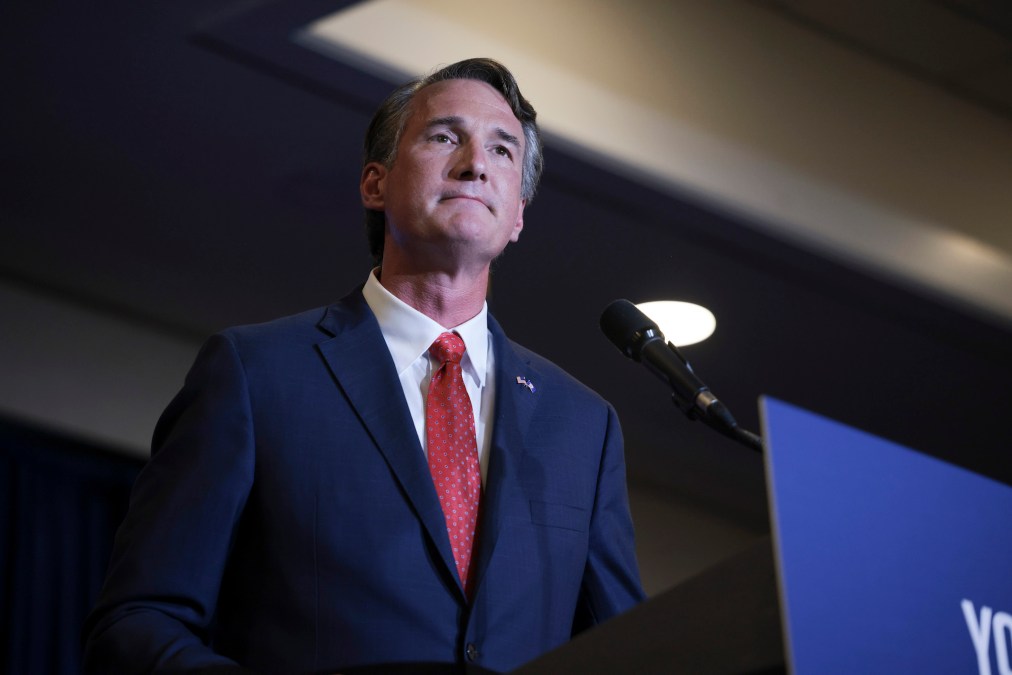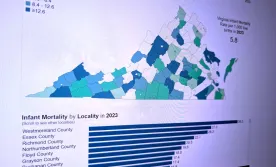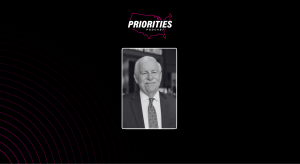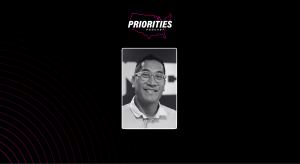Virginia moves to largely end remote work by July

Virginia Gov. Glenn Youngkin on Thursday issued an executive order that will end the broad telework policy that the commonwealth’s employees have been working under since the start of the COVID-19 pandemic more than two years ago.
The order, which Youngkin said in a press release is focused around “innovation and teamwork” will see nearly all Virginia government workers back at their offices by July 5, with exceptions granted only to those workers who receive special permission from their superiors if they’ve got qualifying health or other reasons.
“After listening to the needs of Virginians, discussing solutions with agency heads across government, and closely monitoring the pandemic, we are excited to welcome our employees in-person this summer,” Youngkin’s statement reads. “Embarking on a new path that values innovation and teamwork, we are updating Virginia’s telework policy for the first time in more than a decade.”
While many state workforces have over the past 12 months gradually returned to their in-person settings, many states continue to maintain a predominately remote posture, or have permanently adopted hybrid schedules. Many New York State agencies, for example, allow their employees to work remotely 50% of the time.
Virginia, though has lagged behind its neighbors in bringing its workforce back to the office. Neighboring Maryland and Washington, D.C., both started repopulating their government offices last summer, with D.C. allowing most employees to work from home up to two days per week. To the south, most North Carolina state workers have also been back in government buildings since last summer, though many continued to work remotely at least part-time.
Even with the phased returns to offices in most states, many have recognized remote work as a permanent feature of government. Surveys published over the past two years by the National Association of State Chief Information Officers have found that many IT leaders expect hybrid schedules to stick around.
The order from Youngkin, a Republican who won last year’s gubernatorial election on a campaign that frequently lambasted the COVID-19 polices put in place by his Democratic predecessor, Ralph Northam, will make remote work the rare exception in Richmond, rather than a new normal. Youngkin also moved early in his term to undo many other pandemic-era policies, including vaccine requirements for state workers and masking rules in public schools.
Under a policy published by the Virginia Department of Human Resource Management accompanying the new executive order, telework arrangements will only be established on an individual basis. The policy also supersedes any previous telework agreements.
According to the new rules, employees who want to work remotely one day per week must get approval from their agency heads, two-day allowances require the signature of a Cabinet secretary, while requests for three or more days of telework will go through the governor’s chief of staff.
Agency heads will also be instructed to “promote best practices to demonstrate that the strongest teams are best cultivated and learning is most enhanced in an in-person setting” and to “highlight and inform employees that teleworking is a benefit offered to employees, rather than an obligation of the Commonwealth.”
Outfitting Virginia’s workforce for telework during the pandemic largely fell on the Virginia Information Technologies Agency, which had both equip employees with devices and drastically scale up tools like firewalls, VPNs and other remote protocols by a factor of 10, a VITA official told StateScoop in October 2020.
VITA did not respond to questions Friday about how many of the commonwealth’s roughly 100,000 employees are still working remotely.






